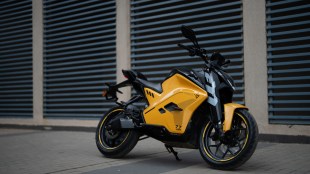
South Korean carmaker Kia Motors has said that it has no plans to shift its $1.1 billion manufacturing plant from Anantapur in Andhra Pradesh to Tamil Nadu. The company is planning to ramp up its production capacity in Andhra Pradesh from two lakh units per annum to three lakh units per annum by the end of this year or earlier. Besides, the Anantapur plant is also equipped to manufacture electric vehicles as it is one of the most modern plants of the company.
Referring to a Reuters report about potential movement of Kia Motors India plant from Andhra Pradesh to Tamil Nadu, the company claimed it as groundless. “Kia has a long-term commitment to India market and we have made an investment of $1.1 billion for the state-of-the-art manufacturing facility at Anantapur. We do not have any plans to shift our production facility from the current location and we are on the right track to utilise the full capacity of the facility. We will continue to offer world-class, made-in-Anantapur vehicles and innovative mobility experience to our valuable customers in India,” a company spokesperson said in a statement.
“Kia Motors and Andhra Pradesh are continuing their strong partnership with Kia planning to ramp up their production capacity in the state from two lakh units per annum to three lakh units per annum by end of this year or earlier. The government of Andhra Pradesh enjoys a cordial relationship with our neighbouring state, Tamil Nadu. The principal secretary to government, industries department, Tamil Nadu has conveyed that they are not in talks with Kia Motors and that there were no discussions between the two parties in this regard,” Rajath Bhargava, special chief secretary, industries, investments and commerce, Andhra Pradesh, said in a statement .
Kia Motors, the eighth-largest automaker of the world, had commenced trial production last year at this 15th plant. The Anantapur manufacturing facility occupies 536 acres and is capable of an annual production capacity of up to 300,000 units. It has committed a phased investment of over $1.1 billion for the plant and the vendors had made a committed investment of over `4,000 crore, creating an ecosystem for the auto major. Billed as one of the largest FDI in the automobile sector, the company had said it would employ 3,000 people and ramp up production in a gradual manner, starting with 100,000 units in the first year in a single shift, and growing to 200,000 units and 300,000 units in the second and third year, respectively over two and three shifts.




















